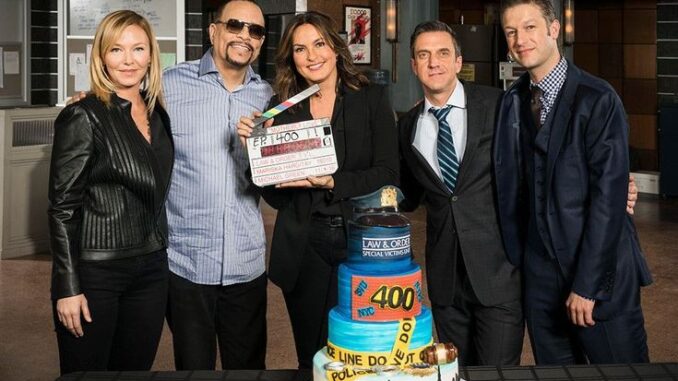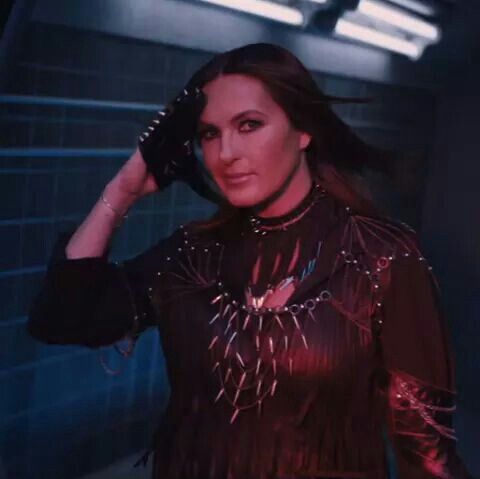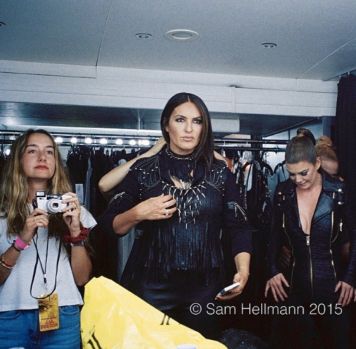
For over two decades, Olivia Benson has been the heart and soul of “Law & Order: Special Victims Unit.” But as the show enters its 26th season, a noticeable shift in storytelling has begun. Olivia Benson’s once-central role is now gradually becoming less dominant, and surprisingly, it’s a welcome change. In this article, we’ll explore why this shift is not only refreshing but could be exactly what the show needs to evolve into something even more compelling.

The Evolution of Olivia Benson’s Character in SVU
Olivia Benson (portrayed by Mariska Hargitay) has been a mainstay of Law & Order: SVU since its debut in 1999. As a tough, compassionate, and highly skilled detective, she quickly became one of the most beloved characters in TV history. However, after 25 seasons of being the central figure in every story, some might argue that the show was becoming too reliant on her.
While Benson’s character has undergone significant growth, this constant focus has sometimes led to predictable narratives and a sense of stagnation. In season 26, the producers have smartly begun to shift the focus away from Benson, allowing other characters and fresh storylines to take center stage.
The Case for Change: Why the Shift Is Necessary
A New Dynamic on Screen
One of the primary reasons for this shift is the desire to refresh the show. SVU has always been about team dynamics, and in recent years, the supporting characters have become more integral to the show’s success. Characters like Detective Fin Tutuola, Sergeant Odafin “Fin” Tutuola, and the ever-present Captain Cragen (though retired) have long been overshadowed by Benson’s storylines. But as the new season unfolds, the writers are smartly giving these characters more time in the spotlight.
Benson’s evolution from rookie detective to experienced leader has naturally led her to become less involved in direct investigations. This change is logical. After all, even the most seasoned detectives would take a step back as they move into more supervisory roles. This makes room for fresh perspectives and new voices, adding depth to the overall narrative of the show.
Expanding the Show’s Storytelling Horizons
Another reason for this shift is the opportunity to explore more complex and diverse storylines. By shifting the focus from Olivia Benson to other characters, the writers can delve deeper into subjects that Benson herself might not be directly involved with. For example, in Season 26, we see more emphasis on issues such as social justice, mental health, and systemic problems within law enforcement. These are themes that resonate strongly with modern audiences and deserve more attention.
The storytelling is now able to reflect the challenges faced by the team, with Benson serving as a supportive yet background character. This enables the show to keep its edge while also engaging with new and important conversations.
What Does This Mean for Olivia Benson’s Future?
A More Balanced Role for Benson

While Olivia Benson remains a central character in SVU, the shift doesn’t mean she’s disappearing. Instead, it suggests a more balanced role where Benson no longer drives every plotline. This is actually a good thing for her character. Over time, too much screen time can risk making a character feel one-dimensional, and this shift allows her to be seen in new, more relatable ways.
As Benson steps back into a supervisory role, we can see her mentor others and deal with the challenges that come with leadership. She still offers support and guidance but does so in a way that feels more grounded and realistic.
Introducing New Faces & Fresh Perspectives
Part of the storytelling shift also involves bringing in new characters and focusing on their growth. New recruits like Detective Joe Velasco, played by Octavio Pisano, and other up-and-coming characters provide a fresh perspective. As these characters face challenges and grow, viewers are offered a more well-rounded picture of the department’s inner workings.
This change opens the door for more dynamic interactions within the team, fostering stronger bonds and presenting a variety of investigative techniques. The focus shifts to the broader world of law enforcement, rather than just one detective’s journey.
How the Shift Changes the Show’s Tone and Pacing
With the departure from Benson-centric storytelling, the tone of SVU has gradually become more ensemble-driven. This has led to an improved pacing in the episodes, as multiple storylines are often being explored simultaneously. In the past, Benson’s story arcs would often dominate the episode, leading to a predictable structure. However, with the new direction, each character now has room to breathe, and the show can balance multiple emotional and investigative threads.
The tone, too, has shifted from focusing on Benson’s personal journey to a more collective one. We now see more moments of vulnerability among the other characters, adding a richer emotional layer to the episodes. As a result, the show feels more grounded and less like a hero’s journey. Instead, it’s a series about people navigating the complexities of their careers and personal lives.
Will the Fans Appreciate This Change?
A Mixed Reception Among Viewers
Of course, not all fans are thrilled with this change. For those who have followed Benson’s journey for over two decades, it may be difficult to imagine the show without her in the spotlight. She has been the backbone of SVU, and her absence in some episodes might feel like a loss.
However, many fans will likely appreciate the show’s ability to evolve. Just as Benson has had to adapt to the ever-changing world of law enforcement, the show itself must evolve to keep up with the demands of modern storytelling. This shift is a natural progression, and the show’s longevity depends on its ability to remain relevant.
The Importance of Adaptation in Long-Running Shows
Long-running TV series face the challenge of remaining fresh after many seasons. If a show fails to evolve, it risks becoming stale or repetitive. The shift in focus in SVU ensures that the series can continue to tackle new issues and keep its audience engaged. Without change, even the most beloved characters can grow tired, and the show’s quality can decline.
What’s Next for SVU and Its Viewers?

New Storylines and New Challenges
As the focus shifts, viewers can expect more intricate and varied storylines that go beyond just solving crimes. We can look forward to episodes that explore the inner lives of the detectives and the personal struggles they face. This change allows the show to tap into deeper, more complex themes that go beyond the procedural nature of previous seasons.
Character Development for the Entire Cast
The writers now have the freedom to dive into the backstories and motivations of characters who may have previously been sidelined. This means we can expect greater character development for Fin, Amanda Rollins, and other members of the squad. This broader narrative approach makes the show feel more authentic, as it reflects the diverse experiences of law enforcement officers.
Conclusion: Why This Shift Is the Right Move for SVU
In the end, Law & Order: SVU’s decision to shift its storytelling away from Olivia Benson is a bold but necessary move. As the series enters its 26th season, this fresh direction allows the show to evolve and stay relevant. By giving more screen time to other characters and addressing deeper social issues, the show is breathing new life into its long-running formula.
Fans may initially be hesitant, but in the long run, this change will likely make SVU even more engaging and impactful. It’s a sign that even the longest-running shows can still adapt and grow, and that’s something to be excited about.
